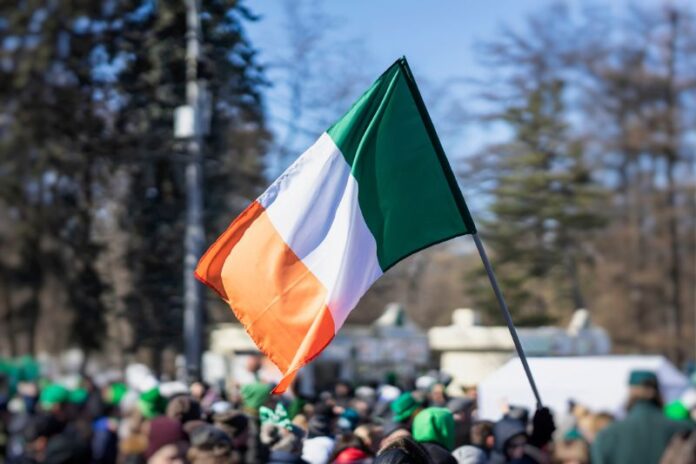The late Irish poet Eavan Boland paid famous homage to the daughters and sons of Ireland who, beginning in the early part of the 19th century, endured the trauma of uprooting themselves from their homeland and traveling to the strange, forbidding land that was America. “What they survived we could not even live,” she wrote in her poem “The Emigrant Irish.” “Now it is time to imagine how they stood there, what they stood with.
Their hardships parceled in them. Patience. Fortitude. Long-suffering in the bruise-colored dusk of the New World.”
“And all the old songs. And nothing to lose.”
The bond between America and Ireland is a powerful one. It has been forged in part by the vibrant role Irish Americans have played in the building of this country, and also by the profound connection the 32 million Americans of Irish descent feel in their hearts for the land of their forebears, a connection that has not withered even approaching two centuries since the Irish started arriving in America in large numbers.
Anyone who visits Ireland and fails to feel the magic of the Irish is made of stone, and President Joe Biden’s trip there last week placed Ireland’s magic on display. “Joe Biden’s big day out in Dublin was a joy,” wrote Miriam Lord, longtime columnist for The Irish Times.
And the joyousness appeared to go in both directions. The Irish were thrilled to see one of their own. Twenty-seven thousand of them showed up to greet Biden outside St. Muredach’s Cathedral in Ballina, a town of 10,000 inhabitants. After all, Biden’s great-great-great-grandfather set sail from Ireland to America in 1851. And that Ireland is dear to the president’s heart is not a secret.
Biden himself does not present as a joyous person, the successful politician’s broad grin to the contrary. It’s not that he’s morose, or a pessimist. But he has suffered a whole lot of loss. And he seems to feel that loss and the loss experienced by others much too keenly to ever look as though the shadows are very far off.
In Ireland, however, the president seemed rejuvenated, as though he were at home. Even the trip’s painful aspects seem cathartic. His visit to the Knock Shrine, the famous Roman Catholic pilgrimage site in County Mayo, was buoyed by an unplanned, emotional reunion with the local priest, who while assigned to the Walter Reed Hospital in Washington, D.C., administered last rites to Biden’s son Beau before he died of brain cancer in 2015. From there he went to a hospice he had dedicated when he was last in the country, where a plaque has been laid in memory of his late son.
Biden’s joy may have been in his homecoming and the obvious warmth the Irish have for him. But he took repeated opportunities to emphasize that America is itself the product of the industriousness and the perseverance, the spirit and the drive, of immigrants — of those who have left their homes all over the world to come here. They have given their all — including their children and grandchildren — to the continuing American experiment. From Africa, from Asia, from South and Central America, from Europe, immigrants refresh and refuel our country on an hourly basis. America’s not-so-secret weapon is the people who come here from other places.
“Just as I imagine their life in County Mayo,” the president said of the Irishmen who braved the frightening journey to America, “I can only imagine how hard it must have been to leave it all behind, to leave the only place they ever called home. They became the untiring backbone of America’s progress as a nation, even as they endured the discrimination and they were denied opportunity.”
This immigrant story of America is not one to be sugarcoated. But it does remain one to be honored. It is yet something else that redounds to Joe Biden’s credit that he understands this, and understands it to his core.































